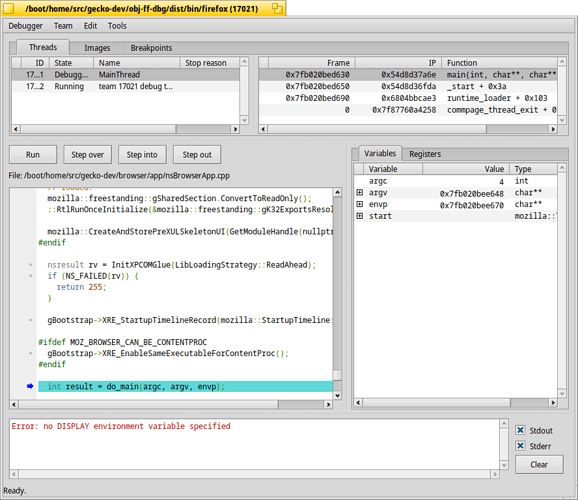As first screenshot I shared, Debugger failed to find C++ symbols, this made debugging nightmare.
This seems the same problem with the following topic,
I searched around workaround about this but I have no luck.
Finally, I tried building Firefox source with GCC (instead of default Clang). But it failed because libxul.so is too large (0x4864c809 bytes = 1,214,564,361 bytes = 1.2GiB).
75:48.07 toolkit/library/build/libxul.so
81:10.04 /boot/system/develop/tools/bin/../lib/gcc/x86_64-unknown-haiku/11.2.0/../../../../x86_64-unknown-haiku/bin/ld: error: libxul.so(.debug_info) is too large (0x4864c809 bytes)
Partially rebuit with GCC, Debugger could find symbols partially. Anyone have workaround this?
